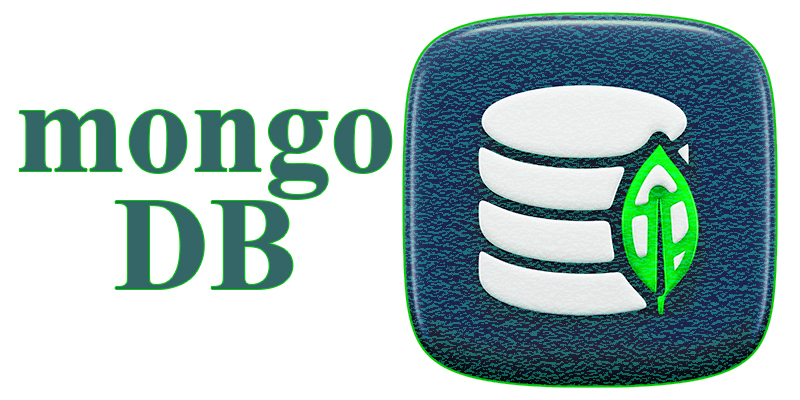MongoDB | What is it, Examples, History and Career Guide
Published: 14 Nov 2024
What is a MongoDB NoSQL Database Used for?
MongoDB is a type of database used to store and manage data. Unlike traditional databases that store data in tables with rows and columns, MongoDB stores data in flexible, JSON-like documents. This makes it easier to work with unstructured data, allowing developers to store different types of information together in one place.
In simple terms, MongoDB is like a digital filing cabinet where each “file” (document) can hold different kinds of information, and you can access and organize it quickly without having to stick to a strict layout. This flexibility makes MongoDB popular for web and mobile applications, where data can vary and change frequently.
Example of a MongoDB Database in Real-World Apps
Here are some examples of MongoDB:
- User Profiles: Stores user details like name, age, and preferences.
- E-commerce Products: Holds info on each product, such as price, reviews, and stock.
- Social Media Posts: Saves posts with content, likes, and comments in one document.
- Real-Time Analytics: Tracks events, like clicks or views, quickly and efficiently.
- IoT Data: Logs data from devices, like temperature or location, as it comes in.
How Does MongoDB Store and Manage Data?
MongoDB works by storing data in a way that’s both flexible and easy to access.
- Data as Documents: Instead of tables, MongoDB uses documents (like digital files) to store data in JSON-like format. Each document can have different fields, which makes it easy to handle varied data.
- Collections: Similar documents are grouped into collections. For example, a “users” collection may store all user profiles, while an “orders” collection stores order details.
- Dynamic Schema: You don’t need a fixed structure for your data. You can add new fields to documents without having to update the whole database, so it adapts to changes easily.
- Indexing for Fast Searches: MongoDB creates indexes (like tags) to help find data quickly, so even large databases are searchable in seconds.
- Sharding and Replication: MongoDB can split data across multiple servers (sharding) to handle huge amounts of information. It also copies data (replication) for backup and reliability.

What is MongoDB Used for in Modern Applications?
MongoDB is used to store and manage data for applications that need flexibility, scalability, and quick access. Here are some common uses:
- Web Applications: Stores user data, posts, and comments for social media, e-commerce, and more.
- Mobile Apps: Manages data for apps with dynamic features like user profiles, notifications, and settings.
- Content Management: Organizes articles, images, and media files for blogs and content-heavy sites.
- Real-Time Analytics: Tracks and analyzes user activity, like clicks and views, to get instant insights.
- IoT and Sensor Data: Collects and logs data from devices, such as temperature or location, for analysis.
- Gaming: Stores game progress, user scores, and in-game items dynamically for a personalized experience.
History and Evolution of MongoDB Database
MongoDB was created to solve the limitations of traditional databases, especially as data grew more complex in modern web applications. Here’s a simple timeline of its history:
- 2007 – Founding of MongoDB: MongoDB was initially developed by a company called 10gen (now MongoDB, Inc.). The founders, Dwight Merriman and Eliot Horowitz, wanted a database that could handle large, flexible datasets that didn’t fit well into traditional tables.
- 2009 – Open Source Release: MongoDB was released as open-source software, meaning anyone could use and modify it. This allowed it to grow quickly, with developers worldwide contributing and improving it.
- 2013 – Company Renames to MongoDB, Inc.: 10gen rebranded to MongoDB, Inc. to focus entirely on the MongoDB database, providing support, tools, and a cloud service.
- 2017 – Public Listing: MongoDB, Inc. went public, which helped it grow even faster. It started expanding features and cloud services, making MongoDB more accessible to companies of all sizes.
- Ongoing Growth: MongoDB has become one of the most popular NoSQL databases, especially favored for modern applications needing flexibility, scalability, and real-time data handling.
- Today, MongoDB is widely used across industries, powering everything from small applications to large-scale enterprise systems.
| Advantages of Using MongoDB over Traditional DBs |
|---|
Here are five advantages of MongoDB:
|
| Disadvantages of MongoDB for Enterprise Projects |
|---|
Here are some disadvantages of MongoDB:
|
Supported Platforms and Environments for MongoDB
MongoDB platforms are tools and services that help you work with MongoDB databases.
- MongoDB Atlas: MongoDB Atlas is a cloud service provided by MongoDB, Inc. It lets you create and manage MongoDB databases online without needing to worry about servers or infrastructure. It handles tasks like backups, scaling, and security, making it easy to set up and use MongoDB in the cloud.
- MongoDB Community Edition: This is the free version of MongoDB that you can download and run on your own servers. It includes all the core features of MongoDB but doesn’t come with the advanced tools and support that the paid version offers.
- MongoDB Enterprise: MongoDB Enterprise is a paid version with additional features for larger businesses. It offers advanced security, monitoring, and support options, ideal for enterprises that need to handle large-scale databases.
- MongoDB Compass: MongoDB Compass is a graphical user interface (GUI) tool that helps you visualize, query, and interact with your MongoDB database. It’s useful for developers who prefer working with a visual interface rather than writing commands.
- MongoDB Realm: MongoDB Realm is a platform for building mobile and web apps with real-time data sync. It helps developers manage app data on both the client and server side, making it easier to create apps that work offline and sync when the connection is restored.
MongoDB vs RDBMS Differences Explained Simply
| MongoDB | RDBMS |
|---|---|
| Stores data in flexible, JSON-like documents. | Stores data in fixed tables with rows and columns. |
| A schema is structured and predefined for tables. | Schema is structured and predefined for tables. |
| Horizontally scalable (easily add more servers). | Vertically scalable (more hardware power needed). |
| Uses MongoDB query language. | Uses SQL (Structured Query Language). |
| Ideal for unstructured, large, or changing data. | Suitable for structured data with clear relationships. |
| Uses embedded documents for relationships. | Uses foreign keys to link tables and maintain relationships. |
| Optimized for fast reading and writing in documents. | Optimized for complex queries across tables. |
| Limited support for complex transactions. | Strong support for complex transactions with ACID properties. |
| Good for social media, product catalogues, and IoT. | Good for banking, e-commerce, and inventory systems. |
Best Careers and Jobs Working with MongoDB
MongoDB offers a variety of career paths due to its popularity in handling big data and flexible data structures. Here are some common MongoDB careers:
- MongoDB Developer: These developers design and build applications using MongoDB. They create and manage databases, write code to work with data, and ensure everything runs smoothly.
- Database Administrator (DBA): MongoDB DBAs focus on managing and maintaining the database. They handle backups, security, and performance tuning to keep data safe and systems running efficiently.
- Data Engineer: Data engineers work with MongoDB to organize and prepare data for analysis. They create data pipelines, making it easier for companies to access and use large amounts of information.
- Data Scientist/Analyst: Data scientists and analysts use MongoDB to gather insights from data. They analyze large datasets to help companies make decisions, using MongoDB to store and retrieve the information they need.
- DevOps Engineer: DevOps professionals use MongoDB as part of larger systems. They ensure MongoDB works well with other tools, managing deployment, automation, and monitoring to keep everything running smoothly.
- Full-Stack Developer: Full-stack developers use MongoDB in combination with other web development tools to create both the front-end and back-end of applications. They often choose MongoDB for its flexibility and speed.
Conclusion About Why Choose MongoDB for Your Next Database Project
MongoDB is a flexible, document-based database that is great for handling large, unstructured, or changing data. Its ability to store data without a strict structure makes it ideal for modern applications like social media, real-time analytics, and IoT. MongoDB is easy to scale across multiple servers, making it a popular choice for companies that need to manage large amounts of data quickly and efficiently. While it may not have the same level of support for complex transactions as traditional databases, MongoDB’s performance and adaptability make it a powerful tool for many growing applications.
FAQS – Database MongoDB
MongoDB Compass is a visual tool to explore, manage, and optimize MongoDB databases, making it easier to work with your data.
Yes, MongoDB has a community of users in Atlanta, and events or meetups may be organized locally.
MongoDB’s stock is listed under the ticker “MDB” on the NASDAQ, showing growth as it becomes more popular in data management.
MongoDB Atlas is a cloud service that manages your MongoDB databases, handling backups, scaling, and updates automatically.
To download MongoDB, visit the MongoDB website, choose your operating system, and follow the installation instructions provided.
A MongoDB cluster is a group of databases working together to store large data sets, improving performance and reliability.
MongoDB Atlas offers automated backups, high scalability, and secure, managed hosting on the cloud, making data management easier.
MongoDB is mainly used to build fast, scalable web and mobile apps. It handles large data sets that may not fit well in traditional databases.
MongoDB is a database, not a full backend. It stores and manages data, while the backend includes everything behind the scenes, logic, APIs, and databases.
The name comes from the word “humongous,” because MongoDB was designed to handle huge amounts of data easily.
MongoDB is written in C++, but developers use many languages (like JavaScript, Python, or Java) to interact with it.
Yes, MongoDB is built using C++. It gives the database high performance and speed.
Yes, MongoDB is a Database Management System (DBMS), specifically a NoSQL one. It manages data without using traditional rows and columns.
Yes, MongoDB is easy to learn, especially for beginners. Its flexible structure and simple syntax make it beginner-friendly.

- Be Respectful
- Stay Relevant
- Stay Positive
- True Feedback
- Encourage Discussion
- Avoid Spamming
- No Fake News
- Don't Copy-Paste
- No Personal Attacks

- Be Respectful
- Stay Relevant
- Stay Positive
- True Feedback
- Encourage Discussion
- Avoid Spamming
- No Fake News
- Don't Copy-Paste
- No Personal Attacks





